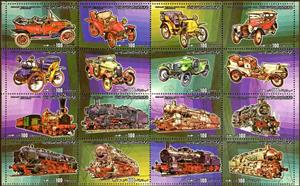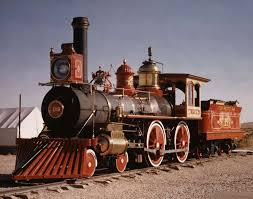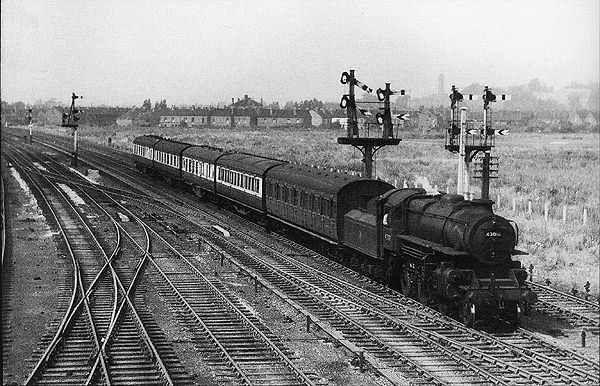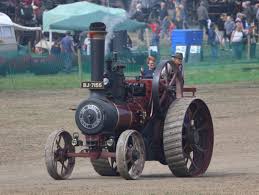Mini Sheet: Automobiles, Locomotives (Libya 1984)
Automobiles, Locomotives (Libya 1984)
01 April (Libya ) within release Automobiles, Locomotives goes into circulation Mini Sheet Automobiles, Locomotives face value 16*100 Libyan dirham
| Mini Sheet Automobiles, Locomotives in catalogues | |
|---|---|
| Michel: | Mi: LY 1313-1328 |
| Stamp Number: | Sn: LY 1190 |
Mini Sheet is square format.
Also in the issue Automobiles, Locomotives:
- Stamp - Locomotive face value 100;
- Stamp - Locomotive face value 100;
- Stamp - Locomotive face value 100;
- Stamp - Locomotive face value 100;
- Stamp - Locomotive face value 100;
- Stamp - Locomotive face value 100;
- Stamp - Locomotive face value 100;
- Mini Sheet - Automobiles, Locomotives face value 16*100;
- Stamp - Locomotive face value 100;
Mini Sheet Automobiles, Locomotives it reflects the thematic directions:
A car is a wheeled, self-powered motor vehicle used for transportation and a product of the automotive industry. Most definitions of the term specify that cars are designed to run primarily on roads, to have seating for one to eight people, to typically have four wheels with tyres, and to be constructed principally for the transport of people rather than goods. The year 1886 is regarded as the birth year of the modern car. In that year, German inventor Karl Benz built the Benz Patent-Motorwagen. Cars did not become widely available until the early 20th century. One of the first cars that was accessible to the masses was the 1908 Model T, an American car manufactured by the Ford Motor Company. Cars were rapidly adopted in the United States of America, where they replaced animal-drawn carriages and carts, but took much longer to be accepted in Western Europe and other parts of the world.
A locomotive is a rail transport vehicle that provides the motive power for a train. If a locomotive is capable of carrying a payload, it is usually rather referred to as a multiple unit, motor coach, railcar or power car; the use of these self-propelled vehicles is increasingly common for passenger trains, but rare for freight trains.
Railways - Transportation system made up of metal rails which is designed to allow trains to maneuver on the tracks from one location to the next.
A traction engine is a steam-powered tractor used to move heavy loads on roads, plough ground or to provide power at a chosen location. The name derives from the Latin tractus, meaning 'drawn', since the prime function of any traction engine is to draw a load behind it. They are sometimes called road locomotives to distinguish them from railway locomotives – that is, steam engines that run on rails.




